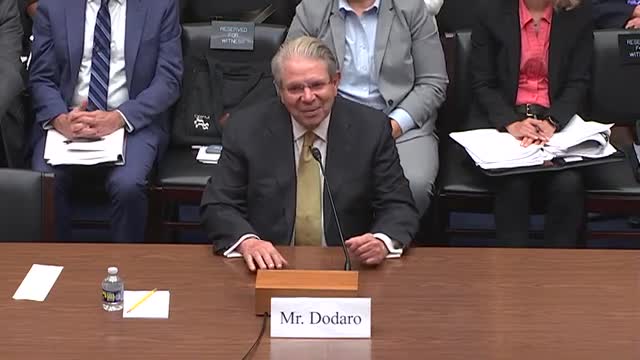Government unveils sweeping reforms to enhance public safety
June 14, 2024 | Oversight and Reform: House Committee, Standing Committees - House & Senate, Congressional Hearings Compilation

This article was created by AI summarizing key points discussed. AI makes mistakes, so for full details and context, please refer to the video of the full meeting. Please report any errors so we can fix them. Report an error »

In a recent government meeting, officials emphasized the critical need for enhanced collaboration among federal agencies to address pressing public safety and national security challenges. The discussions highlighted the importance of effective communication and coordination, particularly in light of emerging threats such as zoonotic diseases, wildfire smoke, and the need for improved biosurveillance.
The meeting underscored the achievements of the Government Accountability Office (GAO), which has made over 2,000 recommendations, achieving a 73% implementation rate. These recommendations aim to bolster national disease surveillance programs and improve responses to natural disasters, among other initiatives. The GAO's focus on public safety is particularly relevant as it addresses the increasing prevalence of wildfires and the health risks associated with wildfire smoke.
Additionally, the meeting addressed significant financial implications tied to healthcare programs. Recommendations were made to equalize Medicare payments between hospital-affiliated and private practice doctors, potentially saving the government an estimated $141 billion over the next decade. The urgency of reauthorizing the FirstNet program, which supports first responders, was also highlighted, with a need for Congress to secure $15 billion to ensure its continued operation without government subsidies.
Officials called for a more proactive approach from Congress to engage with agencies on these critical issues, emphasizing the necessity of bipartisan cooperation. They proposed focusing on collaboration criteria that could enhance government effectiveness, such as defining common outcomes, clarifying roles, and ensuring accountability.
The meeting concluded with a commitment to work closely with agency heads to tackle these challenges, aiming to improve the efficiency and effectiveness of government operations for the benefit of the American public.
The meeting underscored the achievements of the Government Accountability Office (GAO), which has made over 2,000 recommendations, achieving a 73% implementation rate. These recommendations aim to bolster national disease surveillance programs and improve responses to natural disasters, among other initiatives. The GAO's focus on public safety is particularly relevant as it addresses the increasing prevalence of wildfires and the health risks associated with wildfire smoke.
Additionally, the meeting addressed significant financial implications tied to healthcare programs. Recommendations were made to equalize Medicare payments between hospital-affiliated and private practice doctors, potentially saving the government an estimated $141 billion over the next decade. The urgency of reauthorizing the FirstNet program, which supports first responders, was also highlighted, with a need for Congress to secure $15 billion to ensure its continued operation without government subsidies.
Officials called for a more proactive approach from Congress to engage with agencies on these critical issues, emphasizing the necessity of bipartisan cooperation. They proposed focusing on collaboration criteria that could enhance government effectiveness, such as defining common outcomes, clarifying roles, and ensuring accountability.
The meeting concluded with a commitment to work closely with agency heads to tackle these challenges, aiming to improve the efficiency and effectiveness of government operations for the benefit of the American public.
View full meeting
This article is based on a recent meeting—watch the full video and explore the complete transcript for deeper insights into the discussion.
View full meeting